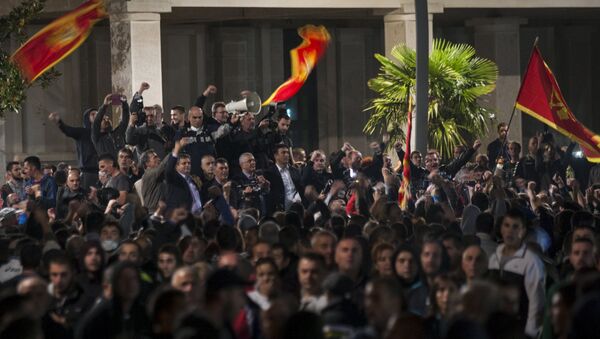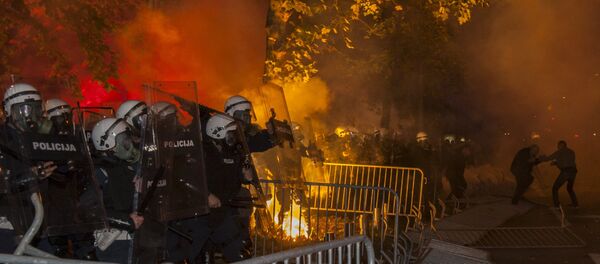According to political scientist Gregory Dobromelov, this position is beneficial for the country’s authorities that are trying to shift the focus from domestic problems and explain the protests by alleged intervention from abroad.
"The Russian Foreign Ministry really made statements condemning the policy of the current authorities in Montenegro. But paying special attention to this fact is the easiest way to explain the protests that are taking place in the country by the involvement from abroad,” Dobromelov said in an exclusive interview with Sputnik.
Prime Minister of Montenegro Milo Djukanovic accused Serbian nationalists and Russia of alleged involvement in the country's anti-government protests and viewed them as a coup attempt. Djukanovic blamed Moscow for hampering European and Euro-Atlantic integration of Montenegro and supporting the opposition, which disapproves of the country’s potential membership in NATO.
"In order to gain support in the West, it is necessary to explain the protests not by social and economic reasons or citizens’ dissatisfaction with the current government, but by some external backstage dealings. [Such strategy] is likely to receive the support of Western leaders and create the required media background," the analyst said.



